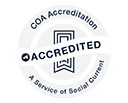Runaways and Missing Kids
Every 40 seconds in America, a child goes missing or is abducted. Children who are missing are at great risk of victimization and exploitation. Many do not perceive the inherent risks or see themselves as potential victims. This is especially true for children who are identified as “high risk.” Youth aged 12-17 are at higher risk for homelessness than adults.
What to do if your child is missing:
- Immediately call your local law enforcement agency. Provide law enforcement with your child’s name, date of birth, height, weight and descriptions of any other unique identifiers such as eyeglasses and braces. Tell them when you noticed your child was missing and what clothing he or she was wearing.
- Request law enforcement authorities immediately enter your child’s name and identifying information into the FBI’s National Crime Information Center Missing Person File.
- After you have reported your child missing to law enforcement, call the National Center for Missing and Exploited Children® (NCMEC) at 1-800-THE-LOST® (1-800-843-5678).
- Download NCMEC’s checklist of actions you can take in the initial stages of a missing child case.
If your child is missing from home, search:
- Closets.
- Piles of laundry.
- In and under beds.
- Inside large appliances.
- Vehicles – including trunks.
- Anywhere else that a child may crawl or hide.
If your child is missing from a store, notify the store manager or security office, then immediately call your local law enforcement agency. Many stores have a Code Adam plan of action in place.
If you are a foster caregiver and a child in your care is missing, immediately call your local law enforcement agency, contact the child’s caseworker and notify the DCFS Child Location and Support Unit (CLSU) at 866-503-0184. The CLSU will work with law enforcement officials, NCMEC and DCFS staff to locate the child.
Why do youth run away from home?
Between 1.6 and 2.8 million youth run away in a year, while countless others contemplate leaving their home. One in five youth run away from home before the age of 18, and half run away two or more times.
Reasons for running away range from trouble at school, family dynamics (divorce, remarriage, step/blended families, family rules or fighting with siblings) and abuse. Youth may run away on impulse to get away from an immediately painful situation, in protest over a house rule or even over an isolated incident. Sometimes they may be drawn away by older friends and the promise of an exciting life, but with no plans for what to do next.
Need help or want to know more?
If you are thinking of running from home, if you have a friend who has run away and needs help or if you are a runaway and need someone to talk to or help returning home, call the Call National Runaway Safeline (NRS) at 1-800-RUNAWAY, 24 hours a day, seven days a week. The NRS offers free, confidential and anonymous support to help you improve your situation, including help with transportation home or to a safe alternative living arrangement and a messaging service to help re-establish lines of communication with your family members or guardians.
Youth who are in the care of DCFS may also call the free DCFS Youth Hotline at 800-232-3798 or email dcfs.advocacy@illinois.gov.
Why do youth run away from home?
Between 1.6 and 2.8 million youth run away in a year, while countless others contemplate leaving their home. One in five youth run away from home before the age of 18, and half run away two or more times.
Reasons for running away range from trouble at school, family dynamics (divorce, remarriage, step/blended families, family rules or fighting with siblings) and abuse. Youth may run away on impulse to get away from an immediately painful situation, in protest over a house rule or even over an isolated incident. Sometimes they may be drawn away by older friends and the promise of an exciting life, but with no plans for what to do next.
Need help or want to know more?
If you are thinking of running from home, if you have a friend who has run away and needs help or if you are a runaway and need someone to talk to or help returning home, call the Call National Runaway Safeline (NRS) at 1-800-RUNAWAY, 24 hours a day, seven days a week. The NRS offers free, confidential and anonymous support to help you improve your situation, including help with transportation home or to a safe alternative living arrangement and a messaging service to help re-establish lines of communication with your family members or guardians.
Youth who are in the care of DCFS may also call the free DCFS Youth Hotline at 800-232-3798 or email dcfs.advocacy@illinois.gov.


